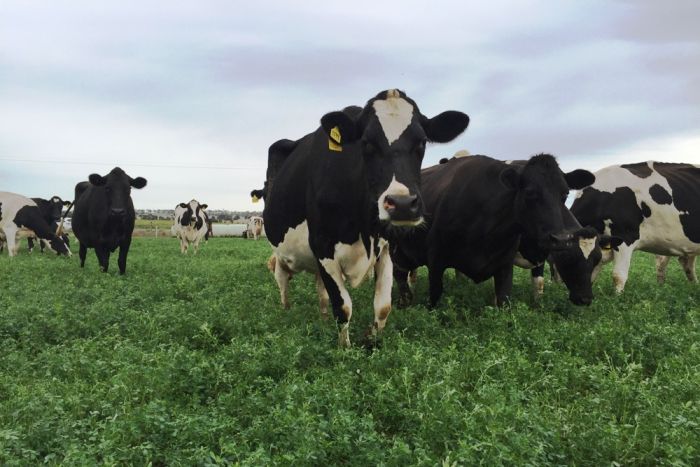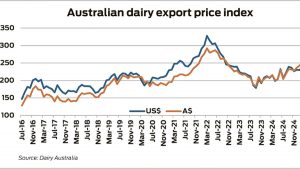
The mandatory code of conduct, which will replace the existing voluntary code in hope of improving dairy farmers’ ability to negotiate better contracts, was poised to be implemented by January 1.
However, Federal Agriculture Minister Bridget McKenzie last week said it was likely the mandatory code’s deadline would be missed.
After the revelations, Mr Fitzgibbon said “political leadership” was needed to aid the nation’s struggling dairy farmers.
“Labor took a dairy policy to the (Federal) election, which included the consideration of a minimum farmgate milk price,” he said.
“As dairy farmers face a price-squeeze during a terrible drought, we needed some political leadership on the dairy industry.”
The comments came after One Nation leader Pauline Hanson’s Private Members Bill, aimed at tasking the competition watchdog with determining a floor milk price, last week failed to pass the Senate.
It was defeated in a 31-30 vote.
The result enraged Senator Hanson, who called for Senator McKenzie to resign from her agriculture ministerial position over the “diabolical” handling of the mandatory code.
The dairy mandatory code was a key recommendation in the Australian Competition and Consumer Commission’s dairy inquiry after the global dairy oversupply in 2016.
It will cover about 87 dairy processors and 5800 dairy farmers nationwide.
WA dairy farmers had welcomed the code’s touted implementation, however, warned it was not a silver bullet to solve the sector’s woes.
In March, Mr Fitzgibbon travelled to met South West fairy farmers in Brunswick to outline Labor’s vision for dairy sector reform ahead of the Federal election.
Mr Fitzgibbon, who at the time was the agriculture minister in waiting, proposed an Australian Competition and Consumer Commission-led investigation to establish a minimum farm gate milk price, alongside a mandatory code.

























